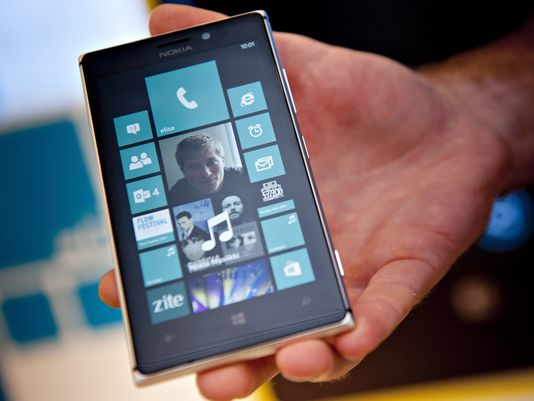Analysis: Can Nokia's sleek handsets power up Windows 8?
SAN FRANCISCO — Microsoft's Labor Day surprise that it is buying Nokia's handset business probably should not come as much of a surprise to those who see Nokia's handsome gadgets as the key to Microsoft's future in the hotly contested market.
Nokia powers the Lumia line of smartphones that have helped Microsoft's Windows Phone 8 gain a toehold in the market led by Apple and Google, whose Android operating system dominates worldwide with handsets from a variety of manufacturers.
STORY: Microsoft buying Nokia's handset business in $7.2B deal[1]
FIRST TAKE: The day/night when tech was turned on its head[2]
On the hardware side, it's mostly been Apple and Samsung duking it out of late, with Samsung's wide-ranging Galaxy line gaining fans with its variety of sizes and features.
But Microsoft — largely through Nokia's slick handsets — has been creeping up the rankings. In its most recent report, researcher IDC said Windows Phone posted its largest year-over-year increase among the top platforms.
"Nokia has clearly been the driving force behind the Windows Phone platform and we expect that to continue," IDC's Ryan Reith said at the time.
Nokia's handsets helped Microsoft reinforce its standing as the No. 3 smartphone operating system — ahead of struggling BlackBerry, said IDC. But beyond Nokia, most non-Apple smartphone makers remained focused on Android.
HTC makes the Windows Phone 8X and Samsung has the Ativ S Neo. But Nokia accounted for 81.6% of all Windows Phone smartphone shipments during the second quarter, according to IDC.
"Nokia has a highly evolved device design and manufacturing process which will benefit Microsoft greatly," says IDC analyst Al Hilwa. "This is simply the fastest path in front of Microsoft to achieve something like Apple's vision on devices."
Windows Mobile might not be off to the fast start that Apple iOS and Google Android enjoyed, but continues to grow, says tech analyst Jeff Kagan. "Microsoft sees a world where there the three big competitors in the wireless space are Google, Apple and Microsoft," he says. "The wireless business is starting to sound like the hamburger business with McDonald's, Burger King and Wendy's."
The Finnish company's handsome Lumia 1020 phone sets the standard for smartphone cameras at a whopping 41-megapixels. The handset, available exclusively on AT&T for now, has an interface built around the "live tiles" that are the hallmark of Windows Phones.
Microsoft claims more than 165,000 apps for its platform — far fewer than what's available for Apple's iOS or Android devices, but still a sizable number.
In casual encounters with Windows Phone owners in the San Francisco area, folks who have tried the phones tend to love them. But it's been tough for Microsoft and Nokia to catch up with the apps eco-system dominated by Apple and Android.
Microsoft CEO Steve Ballmer just last month announced he would be retiring from Microsoft within the next 12 months. Already, much speculation Monday night focused on Nokia chief — and former Microsoft exec — Stephen Elop as a possible successor to Ballmer.
Elop left Microsoft for Nokia in 2010.
September is shaping up as a huge month for mobile devices. In Berlin, at the IFA consumer electronics show, Samsung and Sony are expected to unveil their takes on smartwatches, a hot new category in which Apple also is expected to make a play.
And Apple on Sept. 10 is expected to hold a launch event for its latest iPhone.
Contributing: Ed Baig










